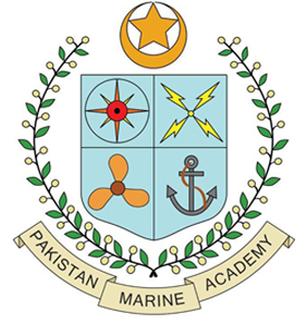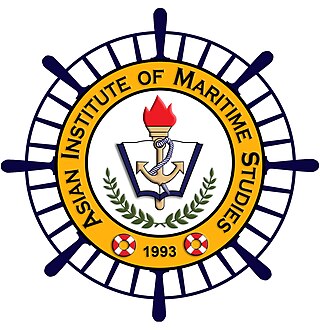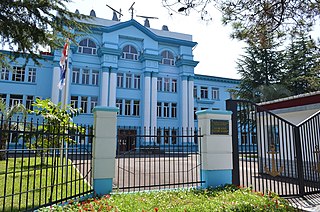
The International Maritime Organization is a specialised agency of the United Nations responsible for regulating maritime transport. The IMO was established following agreement at a UN conference held in Geneva in 1948 and the IMO came into existence ten years later, meeting for the first time on 17 March 1958. Headquartered in London, United Kingdom, the IMO, in 2024, has 176 Member States and three Associate Members.
A second mate or second officer (2/O) is a licensed member of the deck department of a merchant ship holding a Second Mates Certificate of Competence, by an authorised governing state of the International Maritime Organization (IMO). The second mate is the third in command and a watchkeeping officer, customarily the ship's navigator. Other duties vary, but the second mate is often the medical officer and in charge of maintaining distress signaling equipment. On oil tankers, the second mate usually assists the chief mate with the cargo operations.

A third mate (3/M) or third officer is a licensed member of the deck department of a merchant ship. The third mate is a watchstander and customarily the ship's safety officer and fourth-in-command. The position is junior to a second mate. Other duties vary depending on the type of ship, its crewing, and other factors.
International Convention on Standards of Training, Certification and Watchkeeping for Seafarers (STCW) sets minimum qualification standards for masters, officers and watch personnel on seagoing merchant ships and large yachts. STCW was adopted in 1978 by the International Maritime Organization (IMO) conference in London, and entered into force in 1984. The Convention was significantly amended in 1995 and 2010 entered into force on 1 January 2012.

The National Maritime College of Ireland is a public maritime college located in Ringaskiddy, County Cork, Ireland. It is a constituent college of the Munster Technological University. Founded in 2004, it is situated on former Department of Defence land aside the Haulbowline naval base, the headquarters of the Irish Naval Service. It is the first dedicated maritime college of its kind in the State, and was built under the Irish Government's Public-Private Partnership scheme, involving the Munster Technological University, the Naval Service and a number of other partners.

Pakistan Marine Academy (PMA) is located at Karachi, Sindh, Pakistan. It is a Seafarers Training Academy, working under Federal Ministry of Maritime Affairs, Government of Pakistan as an autonomous department. It is affiliated with NED University of Engineering and Technology and is also recognised by Higher Education Commission, Pakistan. Pakistan Marine academy covers an area of around 136 acres on the water front in Karachi Harbor, Hawksbay Road.
A fourth engineer or third assistant engineer is the most Junior engine officer in the engine department of a merchant vessel.

An oiler is a worker whose main job is to oil machinery. In previous eras there were oiler positions in various industries, including maritime work, railroading, steelmaking, and mining. Today most such positions have been eliminated through technological change; lubrication tends to require less human intervention, so that workers seldom have oiling as a principal duty. In the days of ubiquitous plain bearings, oiling was often a job description in and of itself.

Marine Fisheries Academy (MFA) known as Bangladesh Marine Fisheries Academy (BMFA) is a government-run training institution in Bangladesh for cadets wishing to enter the fishing industry, merchant shipping and other related maritime industries. Established in 1973, it is the only national organization offering training for these professions.

Myanmar Maritime University (MMU) (Burmese: မြန်မာနိုင်ငံ ရေကြောင်းပညာ တက္ကသိုလ် ), located in Thanlyin in the outskirts of Yangon, is the premier university of maritime education in Myanmar. MMU offers 5-year bachelor's degree programs. Starting from 2012, MMU, administered by the Ministry of Transportation, offers two-year post-graduate diplomas in various marine and naval disciplines. In 2007, the school had about 1,800 graduate students, pursuing international STCW-95-standards compliant maritime education.

Capitol University is a non-sectarian, co-educational private university located in Cagayan de Oro, Philippines. It is registered with the Securities and Exchange Commission as a stock corporation and operates with the authority of the Department of Education for its primary and secondary programs and the Commission on Higher Education for its tertiary, graduate and postgraduate programs.
The Maritime Academy of Nigeria Oron, Akwa Ibom State was formerly known and address as the Nautical College of Nigeria was established in 1977 by the Federal Executive Conclusion No. EC(77) 172 with assistance from the International Maritime Organisation (IMO). It was established as a training institution under the Research and Statistic Department of the Federal Ministry of Transport. It was declared open for classes on the 6th of October 1979. The academy was originally designed as an integrated institution for the education and training of shipboard officers and ratings and shore-based management personnel.

PMI Colleges, formerly known as Philippine Maritime Institute, is a private, non-sectarian, co-educational higher education, Maritime institution established on September 18, 1948 in Santa Cruz, Manila, Philippines where its main campus is located.

The Asian Institute of Maritime Studies (AIMS) is a Maritime Higher Education Institution (MHEI) in Pasay, Philippines that provides highly technical learning in maritime education. It is a specialized maritime learning and research institution and considered one of the top performing maritime schools in the Philippines consistently producing top-notchers in board examinations. It was founded in 1993 by Captain Wilijado P. Abuid along with other maritime leaders to provide world-class maritime education to the Filipino youth.

Filipino seamen, also referred to as Filipino seafarers or Filipino sailors, are seamen, sailors, or seafarers from the Philippines. Although, in general, the term "Filipino seamen" may include personnel from the Philippine Navy or the Philippine Marine Corps, it specifically refers to overseas Filipinos who are "sea-based migrant Filipino workers".
Maritime resource management (MRM) or bridge resource management (BRM) is a set of human factors and soft skills training aimed at the maritime industry. The MRM training programme was launched in 1993 – at that time under the name bridge resource management – and aims at preventing accidents at sea caused by human error.

Batumi State Maritime Academy is an internationally accredited higher-education maritime school in Batumi, Georgia. The institution's main function is to prepare qualified staff for employment within the marine-trade fleet and maritime transport infrastructure. Batumi State Maritime Academy provides an educational process that is in accordance with Georgian legislation as well as the international STCW Convention.

The Electro-Technical Officer (ETO) is a licensed member of the engine department of a merchant ship as per Section A-III/6 of the STCW Code.
A deck cadet or trainee navigational deck officer or nautical apprentice is an apprentice who has to learn the basic duties of a deck officer on board a ship. The cadet has to complete the prescribed sea-time obtain a certificate of competency as officer in charge of a navigational watch. The cadet has to undergo various training onboard and has to document those in training record book. They have to undergo various forms of training, watch-keeping with chief officer, at port with second mate and normal deck jobs with the Bosun.
Alandica Shipping Academy offers maritime education in Åland, Finland and began operations in 2020. ASA offers basic courses and refresher courses for seafarers as well as undergraduate education at high school and college level. The education takes place at Ålands yrkesgymnasium, Åland University of Applied Sciences and Alandica Shipping Academy. ASA also includes the school ship M/S Michael Sars. ASA is a member of IASST.















